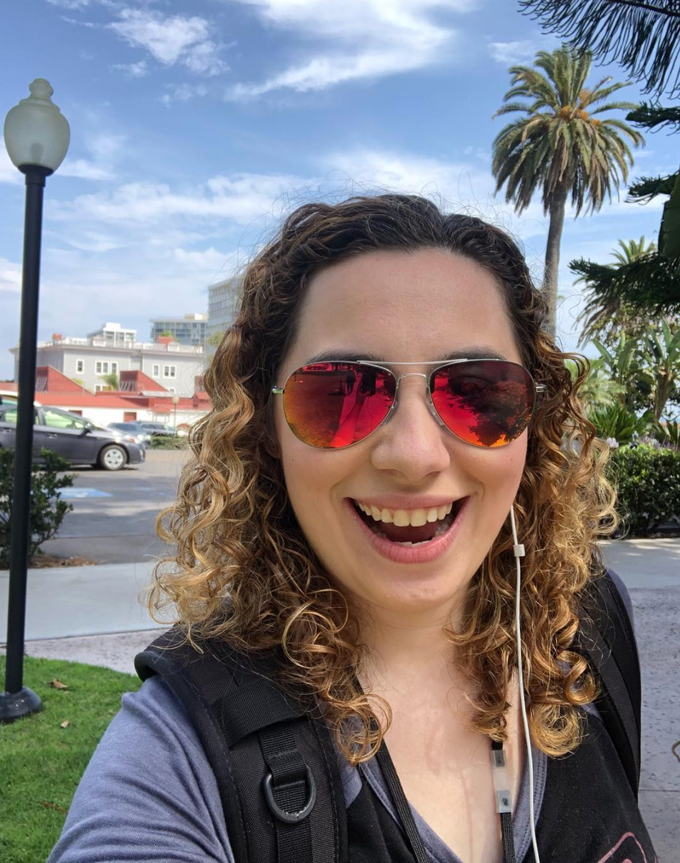Revisiting the dark past of Spider-Man with Kraven’s Last Hunt
Inside the Spider-Man 'Kraven's Last Hunt'
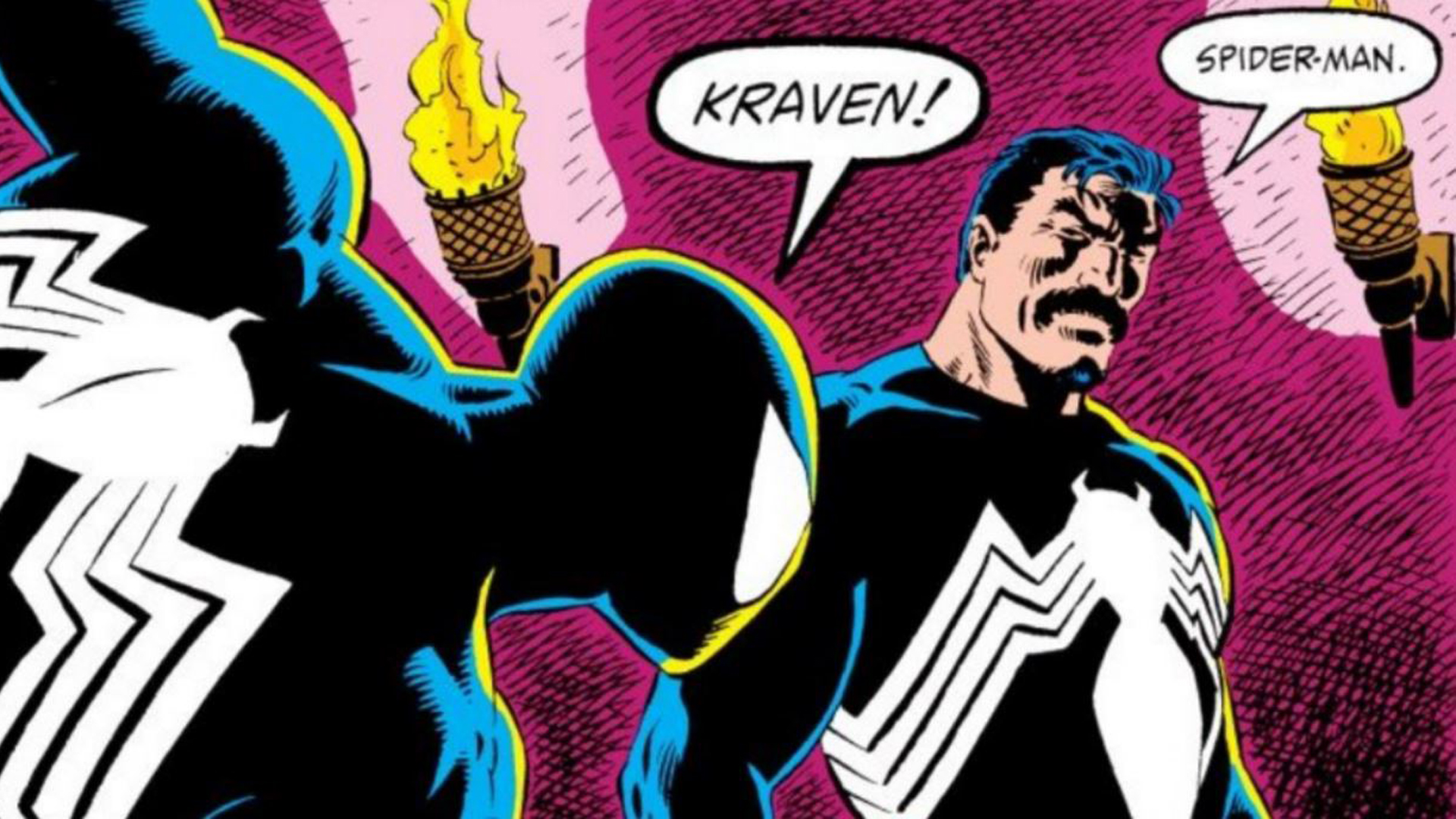
In 1987 Marvel Comics published one of Spider-Man's darkest tales with JM DeMatteis and Mike Zeck's 'Kraven's Last Hunt.' When surveying the entirety of Spider-Man's 50+ year publication history, 'Kraven's Last Hunt' is still considered to be one of Spider-Man's best.
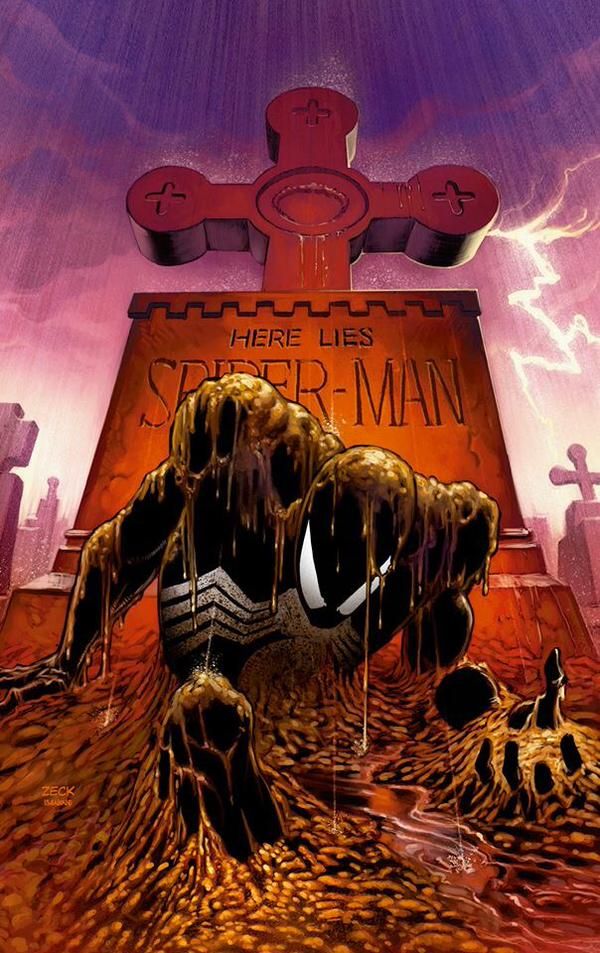
Could you imagine it happening to another hero? Maybe not, but it almost did according to DeMatteis. The writer tells Newsarama that it was initially pitched as a Wonder Man limited series for Marvel, and then an arc of the Batman titles over at DC. It didn't land there but ultimately found its home back at Marvel.
"The way I look at it, it had to be a Spider-Man story or else I would have sold one of those earlier pitches," DeMatteis tells Newsarama. "I really do believe that stories have lives, and timing, of their own and that this story knew, far better than I did, where and how it needed to land."
"As much as I love Batman/Bruce Wayne — and I do, Peter Parker may be the most psychologically authentic character in all of mainstream comics. He's real, believable, layered, relatable: He's fully human. And that humanity made the story all the more resonant."
An element that truly brought that humanity to 'Kraven's Last Hunt' was when Peter thought of his wife Mary Jane when he thought he was about to die; a component that wasn't originally in the story until then-Marvel editor Jim Salicrup suggested the idea.
"How could we have him be married and not think of his wife when he was buried alive?," Salicrup says. "It's something JM added to the story at my request, and it became such a powerful part of the story, that JM thought it was there all along. I had to remind him, at a comics convention after we were on a panel celebrating the 30th anniversary of that story, that the wedding of Peter and MJ happened after he had conceived 'Kraven's Last Hunt.'"
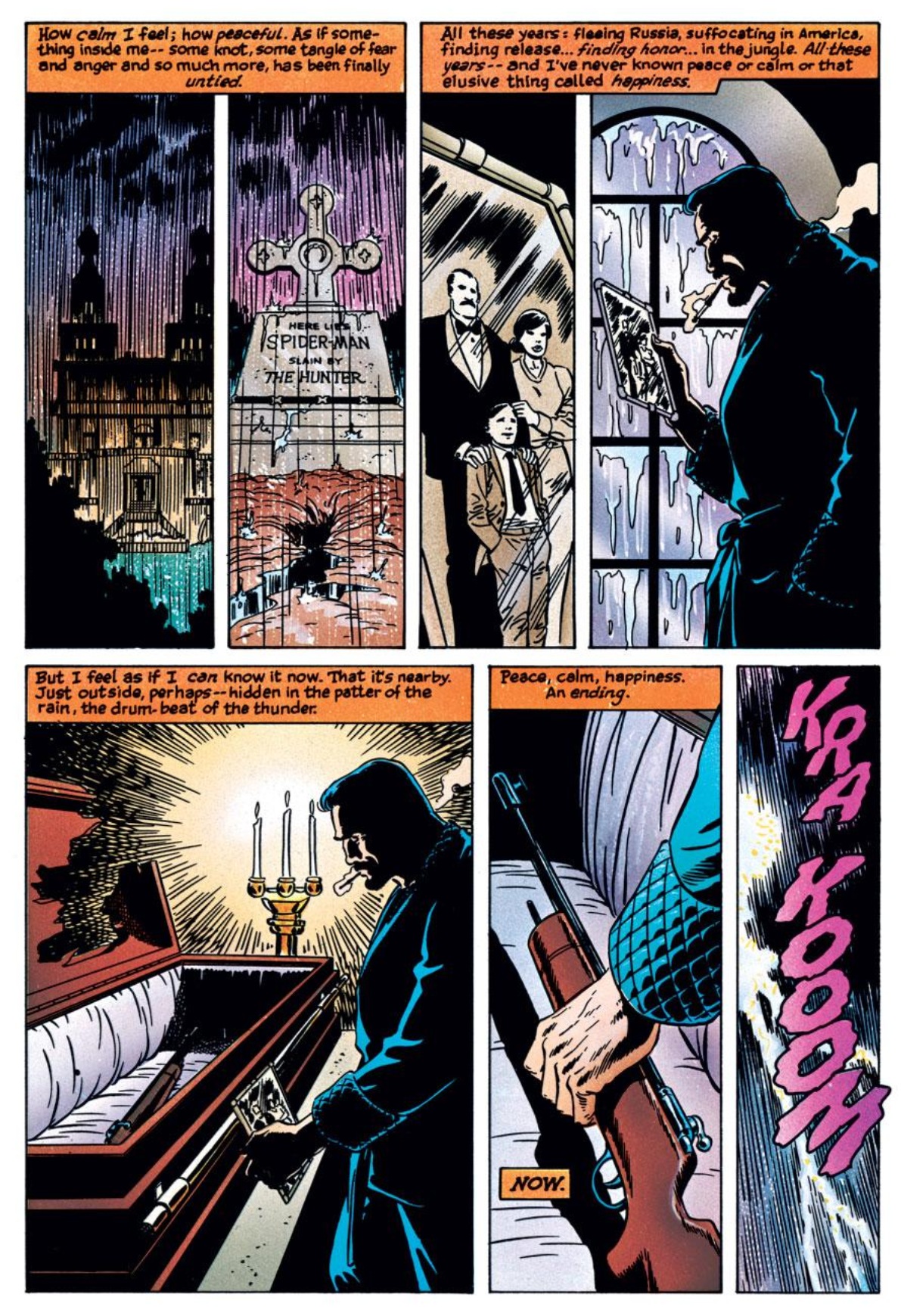
One of the most memorable moments from this story-arc was Kraven's suicide at the end of the story. DeMatteis tell us that it was inevitable, and part of the character.
Get the best comic news, insights, opinions, analysis and more!
"Kraven's suicide was inevitable because of who Kraven was: his painful, dysfunctional childhood, the mental illness that he struggled with," the writer explains. "It was the only outcome for him."
At the time, some readers saw this as glorifying suicide - which DeMatteis tell us he was appalled by.
"We seeded the story with references to Kraven's difficult family life, his mother having died in an institution," says the writer. "The phrase 'They said my mother was insane' is the last thing Kraven thinks. It was clear — to me, at least — that this was nothing glorious. This was a tragedy. So, when we got that feedback (and it wasn't like we were inundated, it was just one letter from a suicide prevention group), I decided to explore and clarify the issue very directly in our sequel, 'Soul of the Hunter.'"
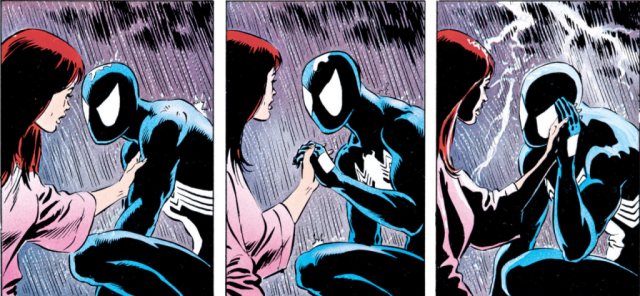
During its release in 1987, it was a thriving seller. Comic book retailer Jim Hanley, of the original Jim Hanley's Universe in New York City, remembers never being able to keep all the issues in stock at one time - ever.
"It was a remarkable seller - with each issue of the various titles it ran in seeing large sales increases over their normal numbers," Hanley says. "As many reorders we got, I don't think we ever managed to keep all the chapters in stock at the same time."
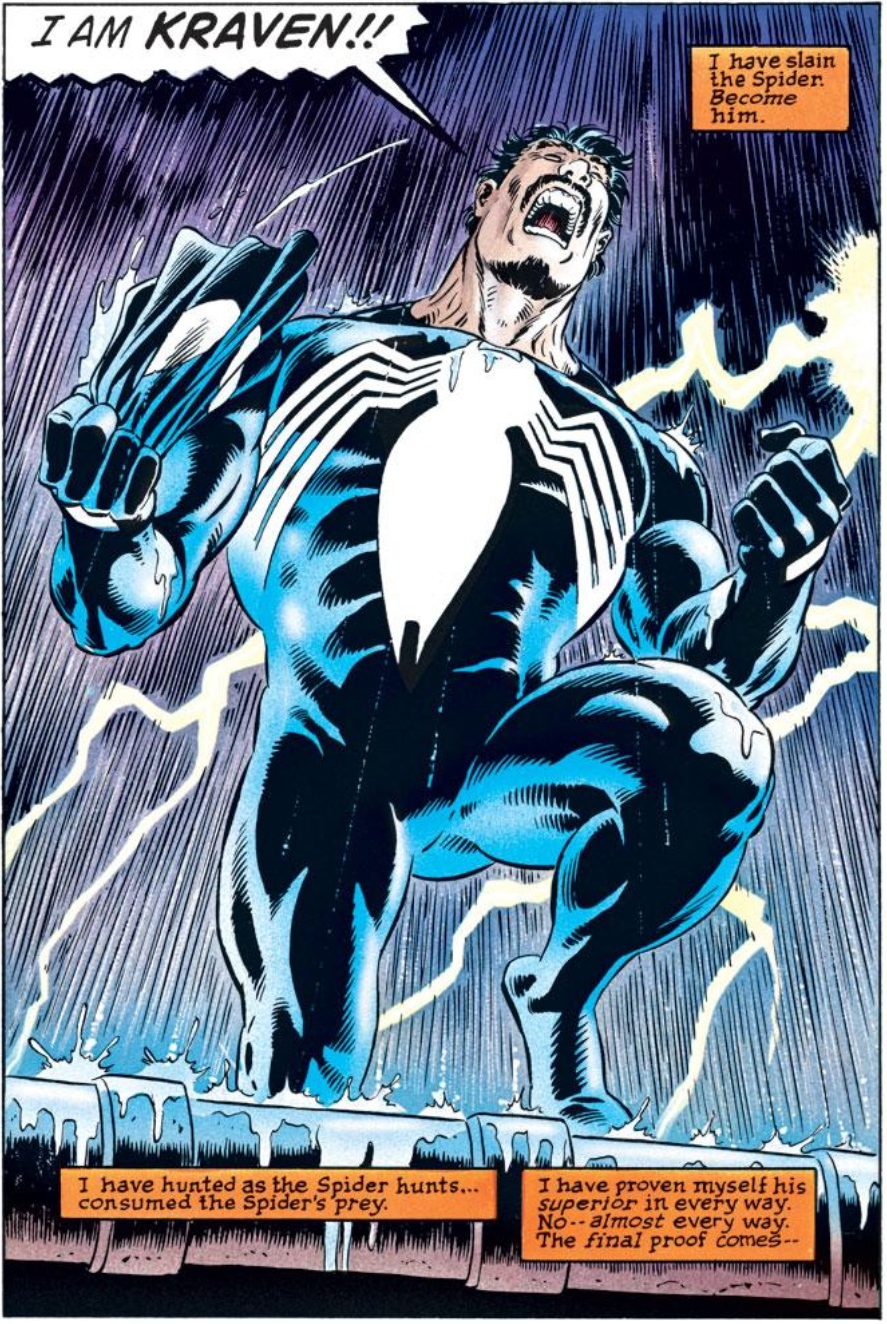
Although Dark Knight Returns was the beginning of darker times for Batman, 'Kraven's Last Hunt' was seen as the last hurrah of a dark Spider-Man for Marvel at the time.
"There was an overall move in super-hero comics at that time to become darker, which I didn't think was right for Spider-Man overall," Salicrup says in retrospect. "That's why I wanted to get rid of Spidey's black costume and return to the red-and-blue costume. But to me 'Kraven's Last Hunt' was simply a great story, featuring a villain that many thought had very limited potential up until that point. Since the story was planned before the return to the red-and-blue costume was scheduled, I thought if we're going to get this dark we may as well do it while he's still in the black costume — I think this story works best with Peter in the black costume."
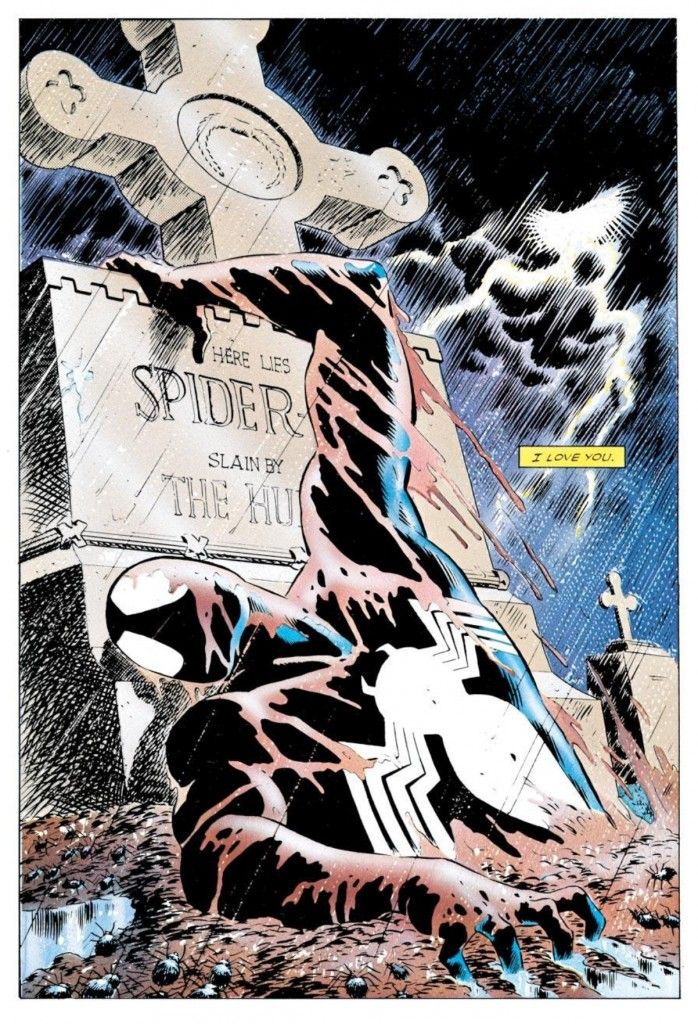
So what makes 'Kraven's Last Hunt' so great? Why has it been able to stand the test of time as one of Spider-Man's best tales? Salicrup has a thought.
"It's simply a powerful story, beautifully written by J.M., dramatically drawn by Mike Zeck, and incredibly inked by Bob Mcleod," the editor says. "It touches on all the major themes involving Spider-Man, and even the scene of Spider-Man clawing his way out of his grave is in the great tradition of when Stan Lee and Steve Ditko had Spidey trapped under all that machinery. It also benefits from being a Spider-Man story, and the many stories that came before, and even after, in providing the full context in which that tale is set."
Salicrup concludes, "The audience certainly has very strong feelings and emotional attachments to that character, perhaps now, more than ever. Many fans first read that story when they were eleven or twelve years old, and it obviously had a great impact on them. I'm still told by fans at comic conventions about how that story scared them when they were kids."
Make sure you've read all of the best Spider-Man stories of all time.
Kat has been working in the comic book industry as a critic for over a decade with her YouTube channel, Comic Uno. She’s been writing for Newsarama since 2017 and also currently writes for DC Comics’ DC Universe - bylines include IGN, Fandom, and TV Guide. She writes her own comics with her titles Like Father, Like Daughter and They Call Her…The Dancer. Calamia has a Bachelor’s degree in Communications and minor in Journalism through Marymount Manhattan and a MFA in Writing and Producing Television from LIU Brooklyn.
